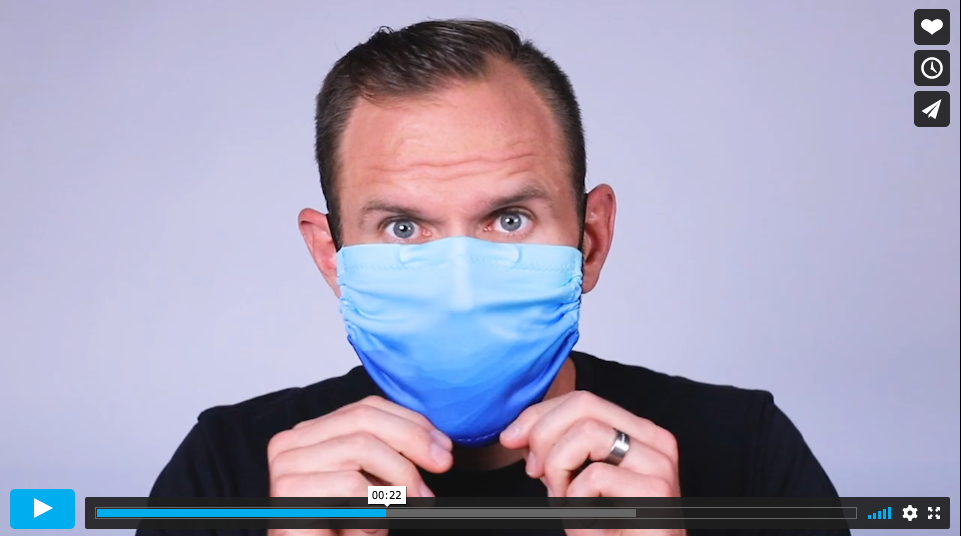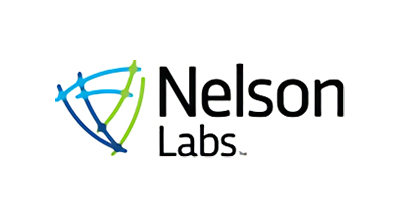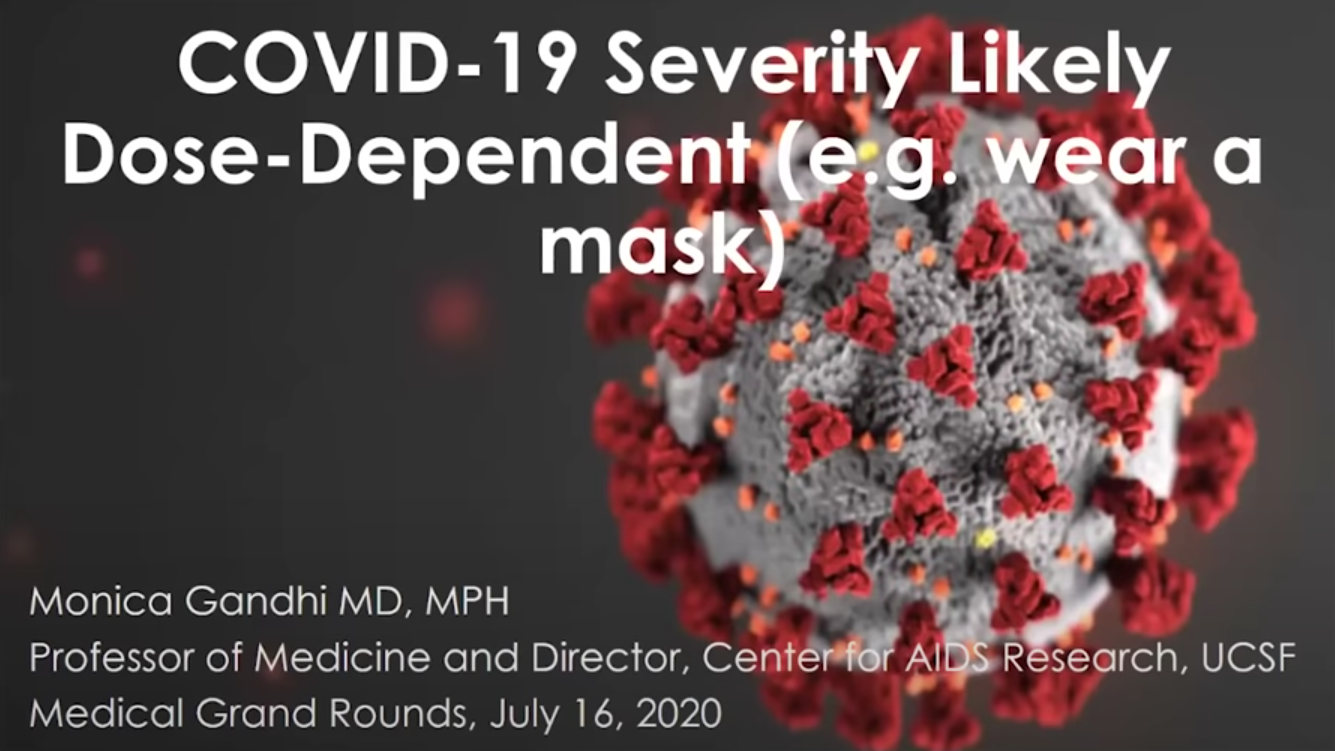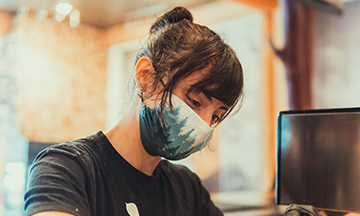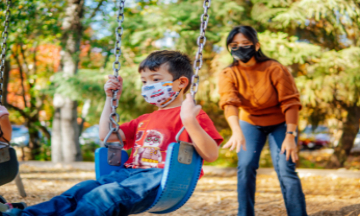Who does the mask protect?
Since the CDC started recommending wearing masks , we've all been told that it’s primarily to protect other people in the event that we are infected but don't know it. While it is true that wearing a mask helps filter the virus as you exhale, it serves the same purpose when you inhale. People who wear masks are far more protected than people who aren't wearing masks.
In the video, Surprising Mask Math and the related article, The Multiplicative Power of Masks, Aatish Bhatia explains how increased mask-wearing has a dramatic impact on slowing the spread of the coronavirus.
While masks obviously don’t guarantee safety, they do decrease our risk of getting sick and the risk of infecting the people around us by blocking and redirecting the aerosolized droplets that come out of our mouths when we breathe, talk, cough or sneeze. Even if you wear a mask that is only 50 percent effective at blocking virus-containing particles, then you’ve cut in half your chance of getting sick when you’re in close proximity to someone who has the virus, even if they aren’t wearing a mask.
But it gets even better. Let’s assume that you and the infected person are both wearing masks that are 50 percent effective. In this scenario, you essentially have twice the protection, so instead of a 50 percent reduction in viral spread, there is now a 75 percent reduction in viral spread. The four scenarios illustrated below show the various routes of Covid-19 transmission.
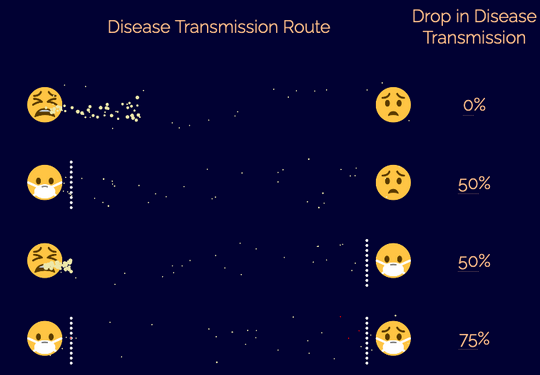
Bhatia compares the effectiveness of mask wearing in stopping disease to the way we put out a fire. Fires need oxygen to spread, and to stop a fire you need to deprive it of oxygen. But you don’t have to eliminate all of the oxygen - just enough to keep the fire from growing bigger. Masks do the same thing with the coronavirus. If enough people wear them, we’ll slow the spread of the disease enough to put an end to the pandemic.
Be sure to read the article The Multiplicative Power of Masks and watch the video Surprising Mask Math to learn more.
Even if you do get infected with the virus, you’ve reduced the amount of virus that you’ve been exposed to which can dramatically impact how sick you get. Learn more about that here.
“By filtering inhaled air, masks provide first-hand protection to those who wear them. And by filtering or redirecting exhaled air, masks provide second-hand protection to everyone.” - The Multiplicative Power of Masks
